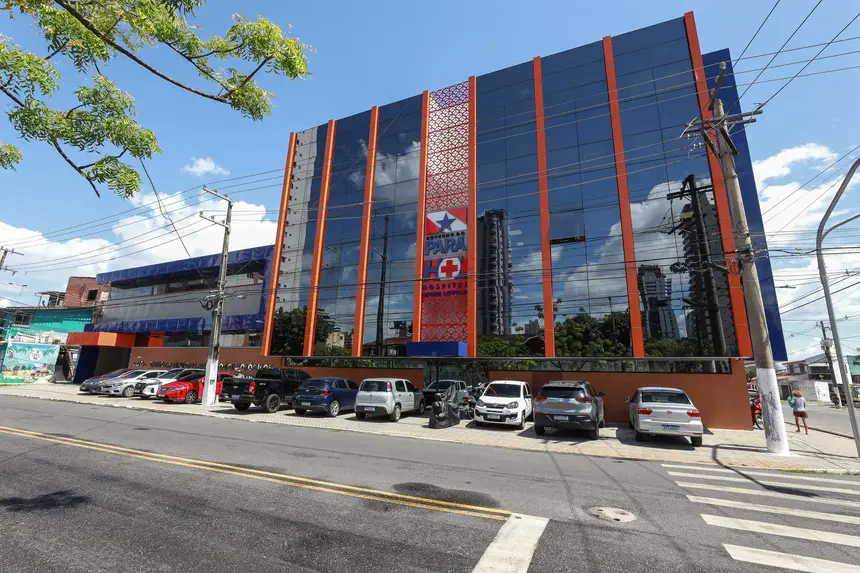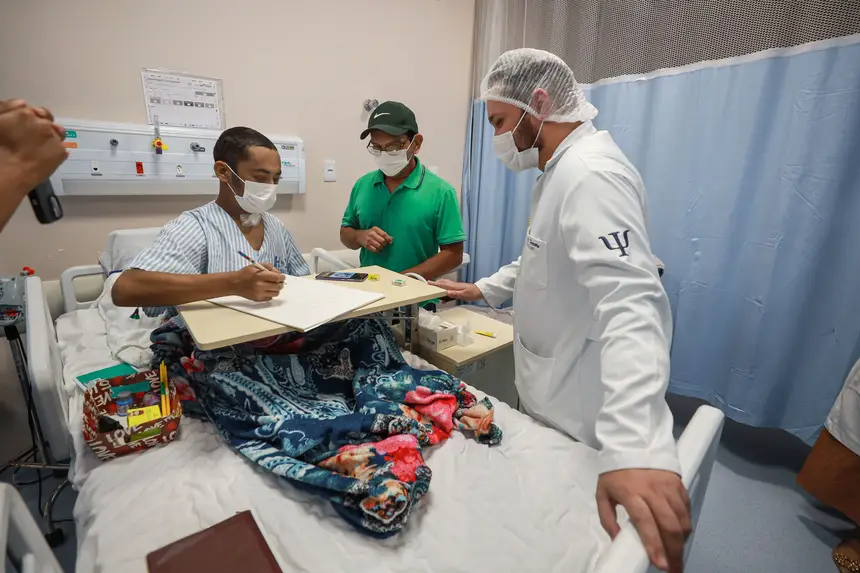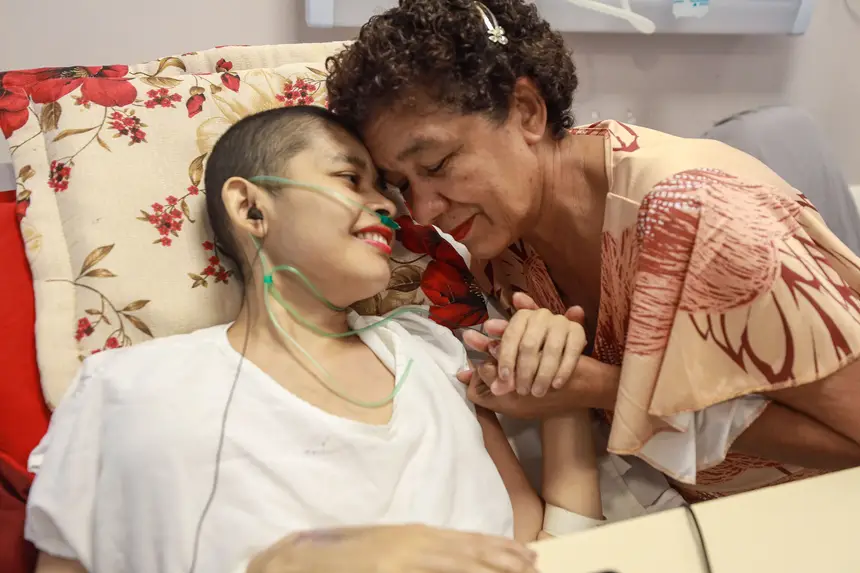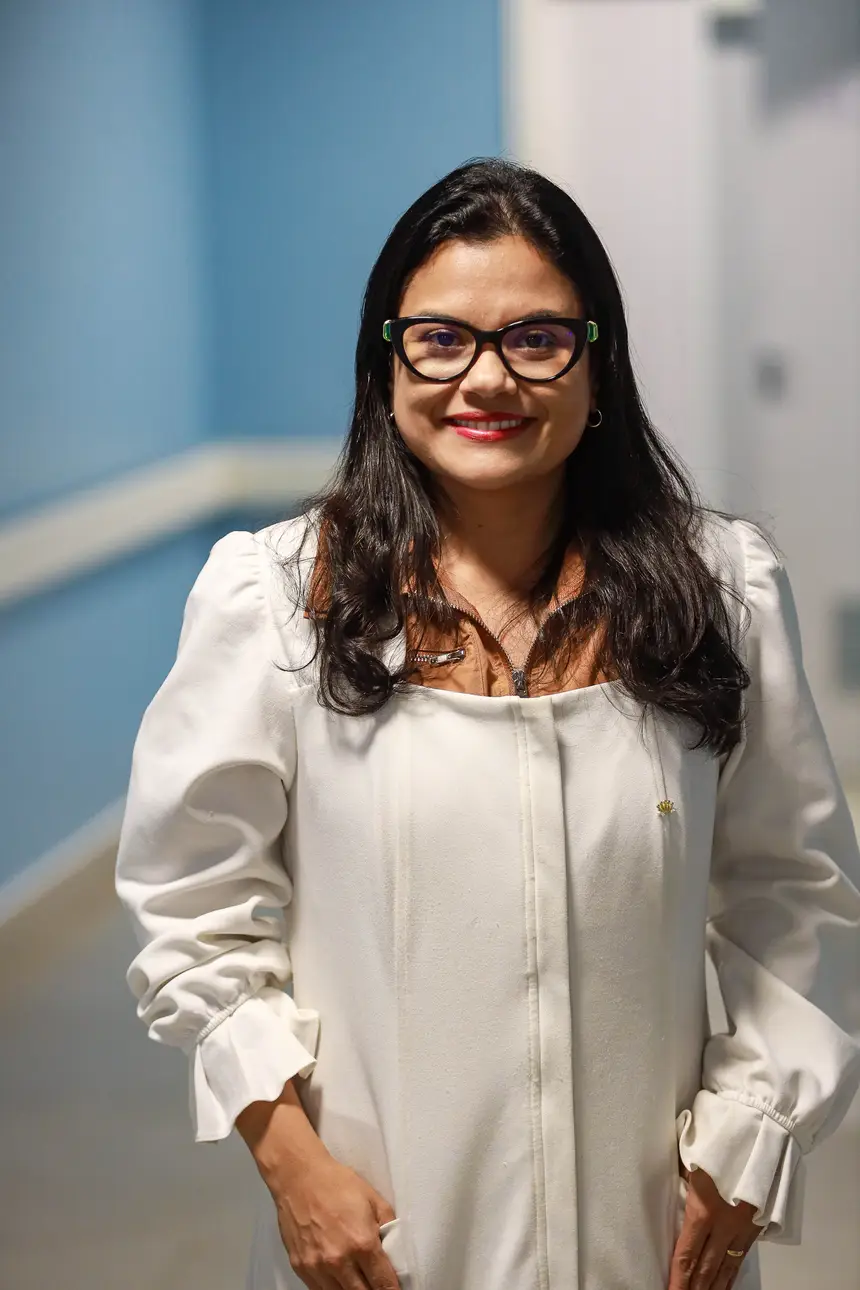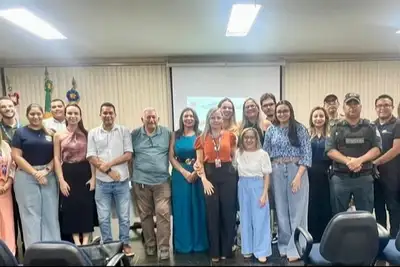Ophir Loyola Hospital's Care Clinic is a reference in humanized support for oncology patients
The unit's dedicated space offers comprehensive and multidisciplinary support to patients and families in the palliative phase of treatment
As a reference in the Unified Health System, Ophir Loyola Hospital maintains the Oncology Palliative Care Clinic (CCPO) as a model of humanized and comprehensive assistance for patients who no longer respond to curative cancer treatments. Operating in its own building and outside the hospital environment, the clinic provides a welcoming space, active listening, and dignity, with multidisciplinary support for users and their families.
Focusing on quality of life, even in the face of the limits imposed by the disease, the CCPO adopts an approach that integrates science, empathy, and continuous attention. The service is offered 100% free of charge by the Unified Health System (SUS), reaffirming the commitment of the Government of Pará to sensitive and excellent public health.
Welcoming care from the first contact
Upon arriving at the clinic, patient Jheymenson Hede Lourenço de Oliveira reported being positively surprised by the welcome. “As soon as I entered the room, a psychologist came in, introduced herself, and asked how I was doing. She wanted to know if I understood what palliative care was. And right there, my welcome began,” he said.
According to him, the differentiated care changed his perception of palliative care. “Many people think that palliative care is synonymous with death. It’s scary. But here, from the beginning, they explained to me that it’s not quite like that.”
The routine at the clinic is marked by the work of a multidisciplinary team composed of specialists in psychology, nutrition, physiotherapy, occupational therapy, social work, nursing, and medicine. Personalized attention is one of the differentiators pointed out by patients.
“What touched me the most was realizing that people really care about us here. It’s not just technical care; it’s human. It’s as if everyone here is trying to make our lives a little lighter, despite the illness,” Jheymenson highlighted.
He also revived an old passion: drawing. With the support of the occupational therapist, he was able to surprise his daughter for her birthday, with special decorations, a moment of celebration, and demonstrations of affection that marked his time at the clinic.
Support also for families
The mother of patient Lilian Leny, Mrs. Francisca Oliveira da Silva, also reported the importance of the welcome. “We arrived on a Friday and were welcomed right away. Not just my daughter, but the whole family. My grandchildren were able to come in and were treated with care. This is not common in hospitals,” she stated.
She also highlighted the improvement in her daughter’s clinical condition and the constant monitoring. “My daughter was very ill, with shortness of breath. They did tests, drained the fluid from her lungs, and she improved. She was on oxygen level 7 and today she is at 2. The difference was enormous.”
For palliative care physician Regiane Frota, palliative care begins with the diagnosis of serious illnesses, not just at the end of life. “We accompany from the beginning, offering support and dignity. Many patients arrive scared, but here we show that it is possible to live with more comfort and meaning,” she explained.
The doctor also emphasized that the work at the clinic is done in a horizontal manner. “Each professional has their importance. Together, we seek solutions that respect the individuality of each patient.”
Care goes beyond the clinic's walls
In addition to hospitalization, the CCPO offers outpatient care, telemedicine, and home visits in the Metropolitan Region of Belém. “If the patient cannot come, we go to them. Our commitment is to the dignity of care, inside and outside the building,” Regiane Frota reinforced.
Psychologist Lucas Ferreira adds that the work involves the entire support network of the patients. “We work with the 'unit of care.' We do not only serve the patient but everyone around them. This includes discussing advance directives, respecting choices, and providing emotional support.”
Between 2022 and 2024, the Oncology Palliative Care Clinic at Ophir Loyola Hospital served about 639 hospitalized patients and conducted nearly 2,000 outpatient consultations. More than the numbers, what stands out is the direct impact on people's lives. “What remains is the affection. Here, they make us forget, for a few moments, that we are sick,” summarizes Jheymenson.


